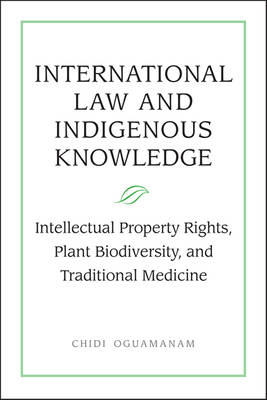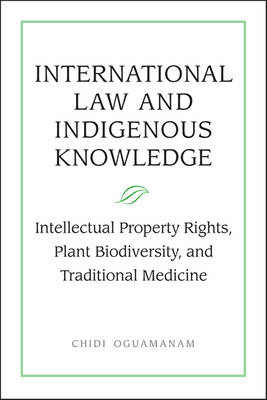
- Retrait gratuit dans votre magasin Club
- 7.000.000 titres dans notre catalogue
- Payer en toute sécurité
- Toujours un magasin près de chez vous
- Retrait gratuit dans votre magasin Club
- 7.000.000 titres dans notre catalogue
- Payer en toute sécurité
- Toujours un magasin près de chez vous
International Law and Indigenous Knowledge
Intellectual Property, Plant Biodiversity, and Traditional Medicine
Chidi OguamanamDescription
In the past, efforts to reconcile the western concept of intellectual property with indigenous knowledge have not taken into account the schism between this knowledge and western scientific forms. As knowledge assumes increasing importance in the quest for self-determination, cultural survival, and economic empowerment, the gulf between indigenous and western scientific knowledge assumes a new meaning. In International Law and Indigenous Knowledge, Chidi Oguamanam argues that the crisis of legitimacy indigenous knowledge poses for the intellectual property system compels a re-thinking of the concept of intellectual property itself.
Drawing on interdisciplinary research, International Law and Indigenous Knowledge takes as its framework the legal doctrinal methodology, focusing on international legal and policy developments regarding the protection of indigenous knowledge. Using traditional medicine and biodiversity to illustrate his thesis, Oguamanam argues that recent international legal and policy developments in the direction of a cross-cultural approach to intellectual property rights are desirable trends. Such developments come closer to addressing the rift between western and non-western knowledge systems as well as the crisis of legitimacy in the conventional intellectual property system.
Spécifications
Parties prenantes
- Auteur(s) :
- Editeur:
Contenu
- Nombre de pages :
- 376
- Langue:
- Anglais
Caractéristiques
- EAN:
- 9781442612181
- Date de parution :
- 30-10-10
- Format:
- Livre broché
- Format numérique:
- Trade paperback (VS)
- Dimensions :
- 150 mm x 226 mm
- Poids :
- 598 g







